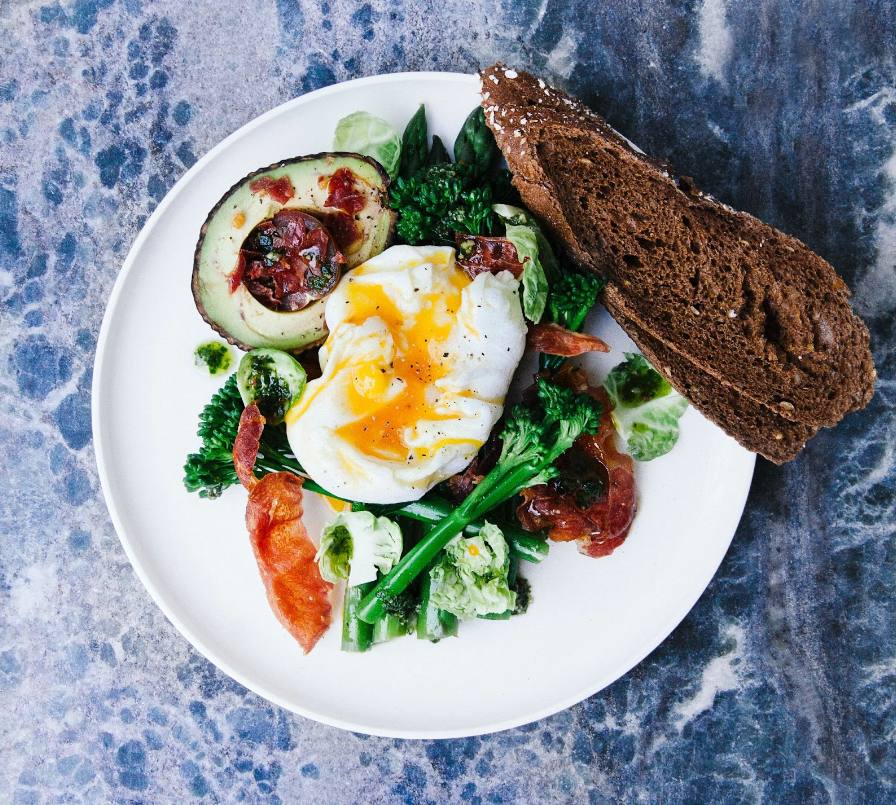Circadian Rhythm
Circadian Rhythm is one of the lesser understood but useful strategies when it comes to weight, energy, mood and appetite regulation.
Simply put, when you eat, is often as important as what you eat.
WHEN EXPLORING FOOD, MOOD & ENERGY IT’S MOST IMPORTANT TO FIND WHAT WORKS FOR YOU AND YOUR UNIQUE BODY & MIND.
Understanding your Eating Rhythm helps naturally guide you to the best time of day to eat for optimal energy, ultimate metabolism, mood & even focus & concentration.
Typical diet culture may have led you to believe that skipping breakfast and having a light lunch is a good strategy.
For many people, this is not the case. While some theories may suggest meal skipping as a weight loss strategy, it’s important to recognise both the short-term downsides while following such a strategy, which can be low energy, low mood and a lack of concentration. And the long-term downside could be that your natural rhythm may be lost to a temporary interruption to your body’s own nature.
Let’s explore Circadian Rhythm (Eating Rhythm).
The body is designed to optimally digest, assimilate & calorie burn at its best when the sun is highest in the sky, directing nutrients to the body & brain where needed, and taking care of all the body’s functions. The ultimate window for metabolism is between noon-1.30pm.
This is the ideal window for consuming our largest meal of the day, when you can receive the true benefits of the metabolic processes in your body.
Understanding how to ‘stoke up’ our metabolism, and helping our body flow through the day with optimal energy can be so powerful, even if you ‘move toward’ this goal by building awareness around how our body’s naturally function.
A HELPFUL ANALOGY
When you rise in the morning and begin to move around, your ‘furnace’ begins to warm up. Adding some quality ‘fuel’ with a light to moderate breakfast will ‘stoke up the fire’.
“Breakfast like a king”, with a super size breakfast, and you will likely put out the fire altogether!
Think about a fire that’s just keeping itself alight through the night, and in the morning it’s just smouldering. Put a little something on and you likely save having to start over. That’s what you’re aiming for with a light to moderate breakfast. Douse it too much and you put it out!
By noon – 1.30, you’re roaring, you’ve been burning fuel (that breakfast) and you feel hungry. Your furnace is now in its ultimate fuel burning state, so you have your largest meal.
Your body will use this wonderful fuel to power up for the rest of the day, keeping your energy levels at a peak, avoiding the ‘afternoon slump’ that typically drives cravings for carbohydrates. You benefit from quality energy in your system and balanced blood sugar.
When we eat a super light lunch (which diet culture has sadly led us to think smaller lunch, smaller body), our blood sugar rises but there isn’t enough fuel to keep the furnace burning, and essentially by 5pm our fire has gone out! The body drives us to eat carbohydrates late in the afternoon, because carbs are the primary source of energy.
Think about it, if energy is low, and we don’t know where our next fuel up is coming from, in an attempt to keep ourselves going for the rest of the day. The body screams ‘carbs’.
However, if you super power up your lunchtime meal, with a good balance of macronutrients (quality protein, dietary fat & complex carbohydrates), you’ll avoid this sudden drop in every, and keep your furnace stoked through the afternoon.
Around 5pm you are ready to eat again, and while your stomach may begin to feel empty, you are still reaping all the benefits from your largest nutritious lunchtime meal – so a lighter meal is sufficient.
Once this lighter meal is metabolised, the body can begin to simmer down as you get ready for the big rest at the end of the day.

By skipping breakfast and having a minimal or late lunch, you will likely have low energy, leading to desperate hunger later in the afternoon/evening.
Many people who follow this sequence find that they have a snack before dinner because they’re too hungry to wait for their meal, pushing out the evening meal to later, or they’re really hungry later and eat a really big dinner.
The ability to burn energy (calories) is lower in the evening as the temperature drops. So the same large meal eaten late actually places more of a caloric load on the body than if you ate it at lunchtime.
The downside of consuming a higher volume of food later in the day, is that we miss some of the great metabolic gifts of sleep.
As you sleep at night the body shifts the bulk of its focus to maintenance, detoxification, repair, and growth of its tissues and organs. The liver, which is our primary organ of detoxification, does the bulk of its work through the night, when the body is resting.
Having our biggest meal before bed can mean the body is focused on processing that meal as we sleep, instead of on detoxification, repair, and growth. So the liver is working ‘all hours’ to metabolise food. The result can be groggy or difficulty getting going in the morning.
The period between dinner and breakfast is a built-in ‘fast’. The fasting state is designed to rebuild and rejuvenate the body. It’s why breakfast is called “break-fast” – we’re ending this period with food in the morning, or it’s a break from the fast. A light to moderate, quality macronutrient-balanced breakfast puts quality fuel on the furnace – a too-heavy meal may put the furnace out altogether, resulting in a mid-morning slump of energy & focus!
During this slump, energy is low, so you will likely reach for those fast-acting carbohydrates again!

If you typically wake up with low energy and struggle to get going, working in this realm of circadian rhythm could be extremely powerful.
You’ll often hear nutritionists recommend that you eat your evening meal about four hours before bedtime. That’s because a four-hour time period is sufficient for most people to fully metabolise a meal. You will then go to bed without raising your body temperature, increasing the likelihood of restful sleep.
A great start is simply avoiding eating 4 hours before bed, see how much more refreshed you feel in the morning!
If you are used to rising and grabbing a light bite, or going without, this will likely be your default until your new rhythm has established a pattern. I recommend preparing a good quality breakfast ahead of time so that it’s ready for you to have in the morning, to help you begin this process of stoking the fire.
Notice if you feel different when you wake up, by having the bulk of your food around lunchtime. Some of my clients have found it helpful in the beginning to save half of their evening meal to add to their salad or lunch the following day. This requires minimal additional preparation.
Remember, what is right for one, may not be the answer for another, and it needs to fit with the rhythm of your life, family and work too. You get to decide what works best, it’s often a balance!
Circadian rhythm is an area that can be extremely helpful to explore.

